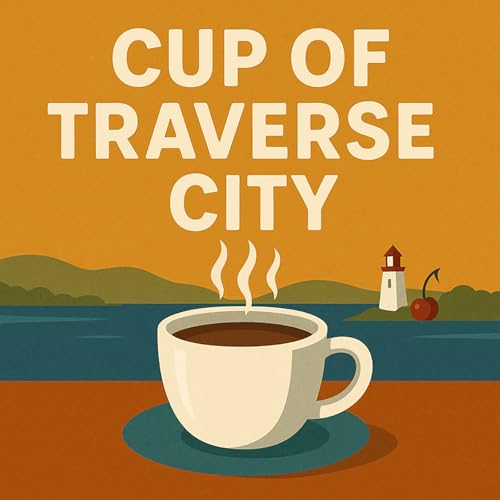In this episode of “Mike Dell’s World,” Mike Dell explores various airports located north of Traverse City, Michigan. He begins the show by introducing himself and referencing the previous episode about flight schools and aviation-related topics in the area. He explains that he will be discussing other airports he has flown to or has connections with, utilizing ForeFlight, an electronic flight bag, for reference.
Mike starts with Antrim County Airport (KACB), located northeast of Traverse City near Bellaire. He describes it as a small airport without a control tower in class E airspace, where pilots announce their locations on a common traffic frequency. He shares his experiences doing touch-and-go landings, low passes for practice, and highlights the airport’s amenities, including fuel services and a comfortable lounge.
Next, he moves further north to Pellston Airport, noting its significance as an airport with scheduled airline service and a restaurant on-site, which he humorously labels a “hundred dollar hamburger” destination. He continues to mention Charlevoix Airport, which hosts Island Airways that services Beaver Island. He details the two airports on Beaver Island but admits he has not landed there.
Mike then discusses Gaylord Regional Airport and Gaylord Airport, emphasizing their runway lengths and his experiences landing there. He contrasts this with Kalkaska City Airport, where he recalls the challenges of landing on a narrower runway. He also talks about Frankfurt Airport, sharing similar landing difficulties due to its relatively short and narrow runway.
He proceeds to describe Manistee County Airport, known for its changing airlines and essential air service. He mentions Cadillac Wexford County Airport, highlighting a unique grass runway formerly used for gliders, which is no longer operational. He shares experiences of flying over various other airports like Mackinac Island and Saint Ignace, where approaches involve over-water flights.
Mike mentions historic Acme Skyport Airport, which has been revived, and Thompsonville Airport, where he had an ultralight flying experience. He also reflects on Wertz Smith Airport, once a large military base with a long runway, describing his future intentions to visit.
Throughout the episode, Mike humorously shares insights about his experiences at these airports, including the challenges of landing, the uniqueness of each location, and the importance of navigating various airspaces, especially concerning military operation areas.
He concludes the episode by teasing that his next episode will cover his memories of the Blizzard of ’78 as a twelve-year-old.
 Dec 9 202537 m
Dec 9 202537 m 8 m
8 m Nov 29 202522 m
Nov 29 202522 m Nov 28 202512 m
Nov 28 202512 m Nov 27 202525 m
Nov 27 202525 m Nov 26 202530 m
Nov 26 202530 m 23 m
23 m Nov 24 202536 m
Nov 24 202536 m
